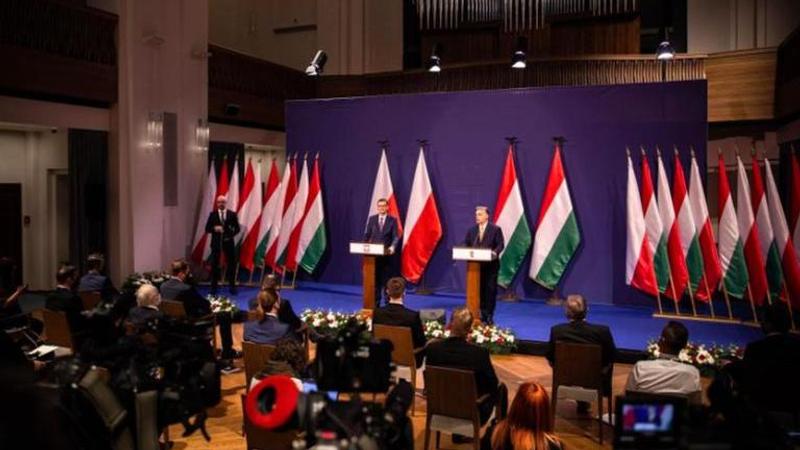Published 19:49 IST, November 27th 2020
Hungary, Poland vow to veto mechanism of EU's €1.8 trillion seven-year budget
A joint statement by Orbán and Morawiecki stated that Hungary and Poland sought to limit scope of budgetary conditionality by proposing a "two-track process".

On November 26, leaders of Hungary and Poland vowed to uphold their veto against the European Union's next budget which includes the COVID-19 pandemic relief fund at the upcoming European Council summit on December 10-11. Arguing that the European Union's €1.8 trillion seven-year budget risked derailing the bloc, the leaders of the two countries said that they would initiate the disbursal of any EU mechanism that links funding to rule of law principal. The European Union had proposed to link the coronavirus recovery package with the budget for 2021-2027, proposed by 27 members.
Hungarian Prime Minister Viktor Orbán and Polish Prime Minister Mateusz Morawiecki opposed the measure in a meeting held in Budapest to resume the talks about the stalled EU budget for January. While the EU seeks to block the funding, which includes a €750bn coronavirus recovery package, for the nations that violated democratic norms, leaders of Hungary and Poland slammed the act as arbitrary. They argued that such a provision would require amendments to EU treaties, and they will continue to oppose any such measures to the budget's approval. According to a joint statement by Orbán and Morawiecki, Hungary and Poland sought to limit the scope of budgetary conditionality by proposing a "two-track process", at the same time negotiating with the EU.
'sanctions' against Hungary, Poland
"We have decided to align our positions on these issues. Neither Poland nor Hungary will accept any proposal that is deemed unacceptable by the other," their joint statement said. Meanwhile, in an interview with German weekly Die Zeit, Hungarian premier Orbán accused the European Parliament of pressure to check "fundamental values" that violate the EU treaties. He also condemned the European Commission of "abuse of power" after the European Parliament accused Hungary of serious violations of EU values and initiated a process of sanctions.
According to a report commissioned by the European Parliament, drafted by the Dutch MEP Judith Sargentini, the EU recommended initiating Article 7 sanctions proceedings against Hungary. Article 7 of the Lisbon Treaty is a mechanism that lets members sanction a state that leads to a temporary loss of EU Council voting rights. The two countries challenged the mechanism that would financially isolate members based on moral and democratic values.
The far-right premier of Hungary has often been called out for curbing press freedoms, judiciary independence, detaining asylum seekers, and limiting the rights of non-governmental organizations. Hungary and Poland got support from Slovenia's Prime Minister Janez Jansa, and Hungary's lawmakers said that their leader was acting in his nation's interest. Poland's Prime Minister, similarly, argued that he was "defending the unity of the union." Poland and Hungary have been trying to hold the EU hostage to the seven-year budget after the European Commission issued a 'rule-of-law report' calling out at the two nations for non-adherence to the rule of law. Questioning the state of democracy in the two countries, EU members pushed for the leaders to bring reforms to the policies based on "Christian foundations."
The judicial systems are under threat, EU’s executive commission mentioned in the report, citing a high level of corruption in the audit, targeting of media freedoms, minority rights, the electoral system, and academic and religious freedoms. Meanwhile, the EU deemed Poland deficient in the four main areas reviewed: national justice systems, anti-corruption frameworks, media freedom, and checks and balances. Polish and Hungarian lawmakers lashed at the EU, saying, the international "liberal mainstream" institutions' bloc’s rule-of-law standards were flourishing on capitalism.
(Image Credit: Twitter/@@zoltanspox)
Updated 19:49 IST, November 27th 2020




